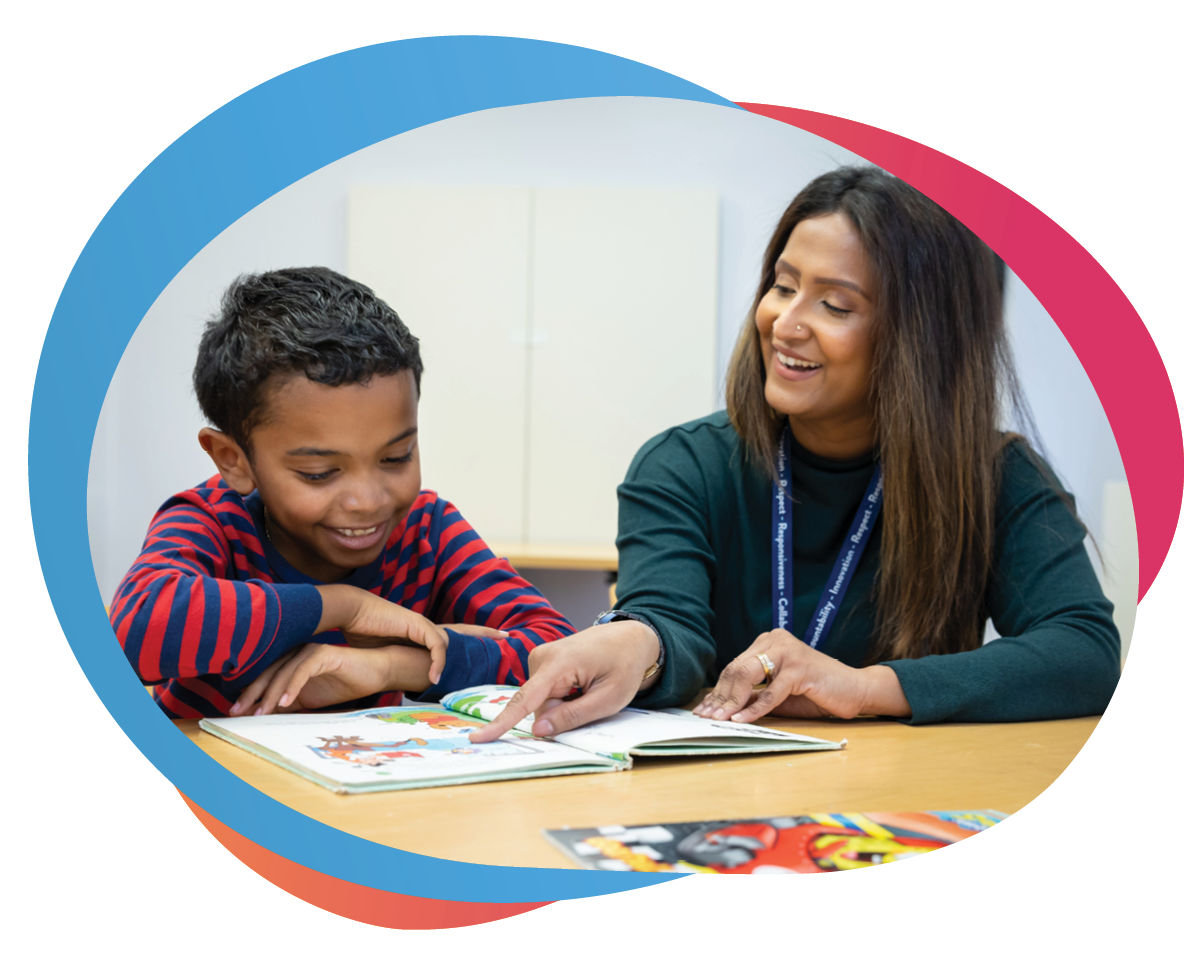Your Child Has Autism – Now What?
We’re here to help at every stage in your autism journey.

How can we help your family?
We’re wondering if it’s autism
Looking to have your child assessed for autism? Reach out to a diagnostic hub near you. At Surrey Place, we offer early ASD assessments to fast track this process. While you wait for a diagnosis, explore our Resource Library to learn about autism strategies you can use at home.
Early ASD Assessment
Get started with an autism assessment for young children (0-6) that looks at play skills, adaptive skills and autism indications
Resource Library
Browse our directory to learn behaviour strategies to use at home and access information about community resources and funding
Basic Communication
For children 2-5 with a suspected autism diagnosis, this service is for children with five sounds or less who can imitate sounds
Picture Exchange Communication System
For children 2-5 with a suspected autism diagnosis, this service is for children to initiate communication by exchanging picture cards
We finally have a diagnosis
Got a diagnosis? Apply for OAP funding for Core Clinical Services like ABA Group Therapy, speech-language pathology, occupational therapy and mental health groups. Want to get started right away? Consider purchasing services out-of-pocket. In the meantime, register for Wellness Services events to begin your autism journey with free webinars and workshops.
Accessing OAP Funding
Learn about the new Ontario Autism Program including funding and services offered, who is eligible and how to access services
Autism Services
Learn about our autism services for a suspected diagnosis, confirmed diagnosis, those waiting for OAP funding or ready to purchase services
Wellness Services
Join free webinars, workshops, training and events on a variety of subjects hosted by clinical experts in autism and developmental services
We’re registered with the OAP
Registered for the OAP? Access free OAP services including Foundational Family Services, Caregiver-Mediated Early Years Services, Entry to School Program and Urgent Response Service. If these services don’t meet your needs, you can purchase Core Clinical Services out-of-pocket to get started right away.
Core Clinical Services
Learn about our autism services including applied behaviour analysis, occupational therapy, speech-language pathology and counselling services
Caregiver-Mediated Early Years Services
Learn strategies to support your child’s development in communication, social interaction, play, emotional development and more
Entry to School Program
Help your child prepare to enter school for the first time with skill-building and transition planning support
Foundational Family Services
These free workshops provide you with tools to work with your children and participate in their ongoing learning and development
We’re ready to purchase services
Whether using OAP-funding or paying out-of-pocket, you can purchase applied behaviour analysis group therapy, speech-language pathology, occupational therapy and mental health groups. Unsure which service is suitable for your child? Reach out to 1-833-575-5437 or inquire at surreyplace.ca/registration.
ABA Group Therapy
Learn about behaviour therapy group-based programs for targeted skill development with an optional 1-to-1 support add-on available
Speech-Language Pathology
Learn about speech-language pathology to help with speech and language delays and improve communication skills
Occupational Therapy
Learn about occupational therapy to increase independence relying on physical coordination and movement
Full Day ABA (IBI)
Learn about full day ABA, or IBI, provided one-on-one for multiple days per week to target goals within a range of developmental areas
We’re dealing with urgent behaviour
Experiencing new or escalating high-risk behaviours? Get rapid support from our Urgent Response Services to reverse behaviours quickly. For strategies to address challenging behaviours at home, check out our Strategies for Handling Challenging Behaviours resource.
Urgent Response Services
This brief service for children or teens is designed to rapidly support urgent and escalating behaviours that are putting your child or family at risk
Strategies for Handling Challenging Behaviours
This tip sheet explains strategies to assist with behaviours like aggression, self-injury, sexualized behaviour in public, swearing and property damage
We have concerns related to school
If you have concerns about your child’s school readiness, the Entry to School Program can help prepare your child with the skills they need to start kindergarten or grade one. Psychoeducational assessments provide recommendations that assist with developing Individual Education Plans.
Entry to School Program
Help your child prepare to enter school for the first time with skill-building and transition planning support
Psychoeducational Assessment
Get more information about your child’s cognitive, academic and everyday functioning to understand their strengths and challenges better
Can’t find what you need?
We are always looking for new ways to support children and youth with autism and their families. Write to us at autismservices@surreyplace.ca.